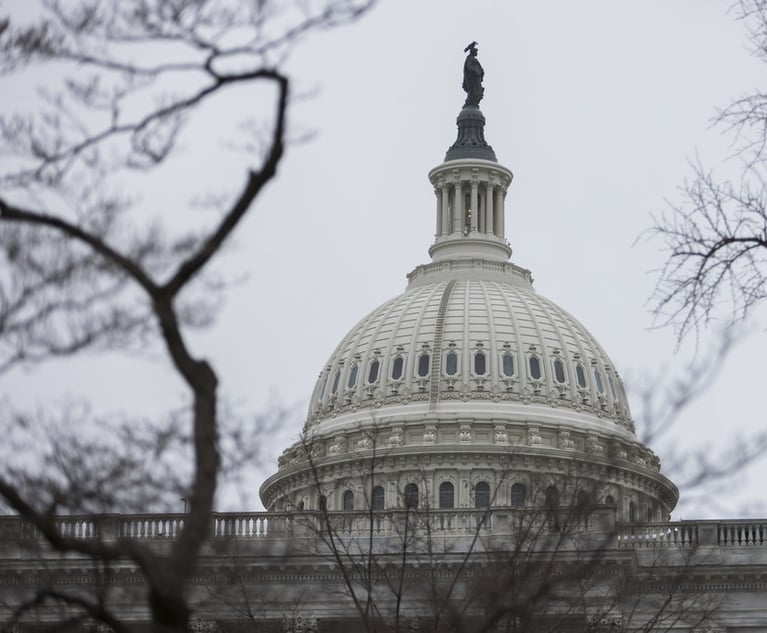CAPITOL PUNISHMENT - The House select committee investigating the Jan. 6 attack on the U.S. Capitol is preparing to ramp up its probe—but, as you might expect, the subjects of that investigation are not going to make it easy. As Law.com’s Andrew Goudsward reports, legal challenges against the panel have already mounted. Allies of former President Donald Trump who have been subpoenaed for information about the leadup to the violence Jan. 6 and Trump’s attempts to overturn the 2020 election have raised a variety of objections to those demands, including executive privilege and alleged First and Fourth Amendment violations. And increasingly they’re going to court to press their objections. Some legal experts have suggested the lawsuits are a stall tactic, a way to forestall potential criminal contempt charges and delay the committee’s work until an expected Republican takeover of the House in 2023 shuts down the investigation. The federal appeals court in D.C. has already upheld the legality of the committee and found that it has a valid legislative purpose to subpoena White House records. But lawyers representing potential witnesses have accused the committee of abusing its subpoena power, issuing demands that intrude on personal privacy and violate constitutional principles. U.S. District Judge Carl Nichols of the District of Columbia, a Trump appointee, has been assigned several of the cases.
‘DISAPPOINTING’ DIVERSITY FINDINGS - At the nation’s largest law firms, the percentage of attorneys who identify as racial and ethnic minorities has increased little in the past 10 years despite the firms’ stated interest in boosting diversity, Law.com’s Jessica Mach reports. In 2020, attorneys who identify as racial or ethnic minorities made up 20% of the legal workforce at more than 200 firms representing most of the Am Law 100 and the NLJ 250, according to a report published Wednesday by the Minority Corporate Counsel Association. That’s up from 14% in 2010.The changes indicate a “decade of slow progress” toward improved diversity in the legal industry, read the MCCA report, which described its findings as “disappointing.” “For workplaces worldwide, 2020 was a call to reassess traditional operating procedures—and to set about redefining the status quo of work cultures that have not supported all workers,” the report said.










